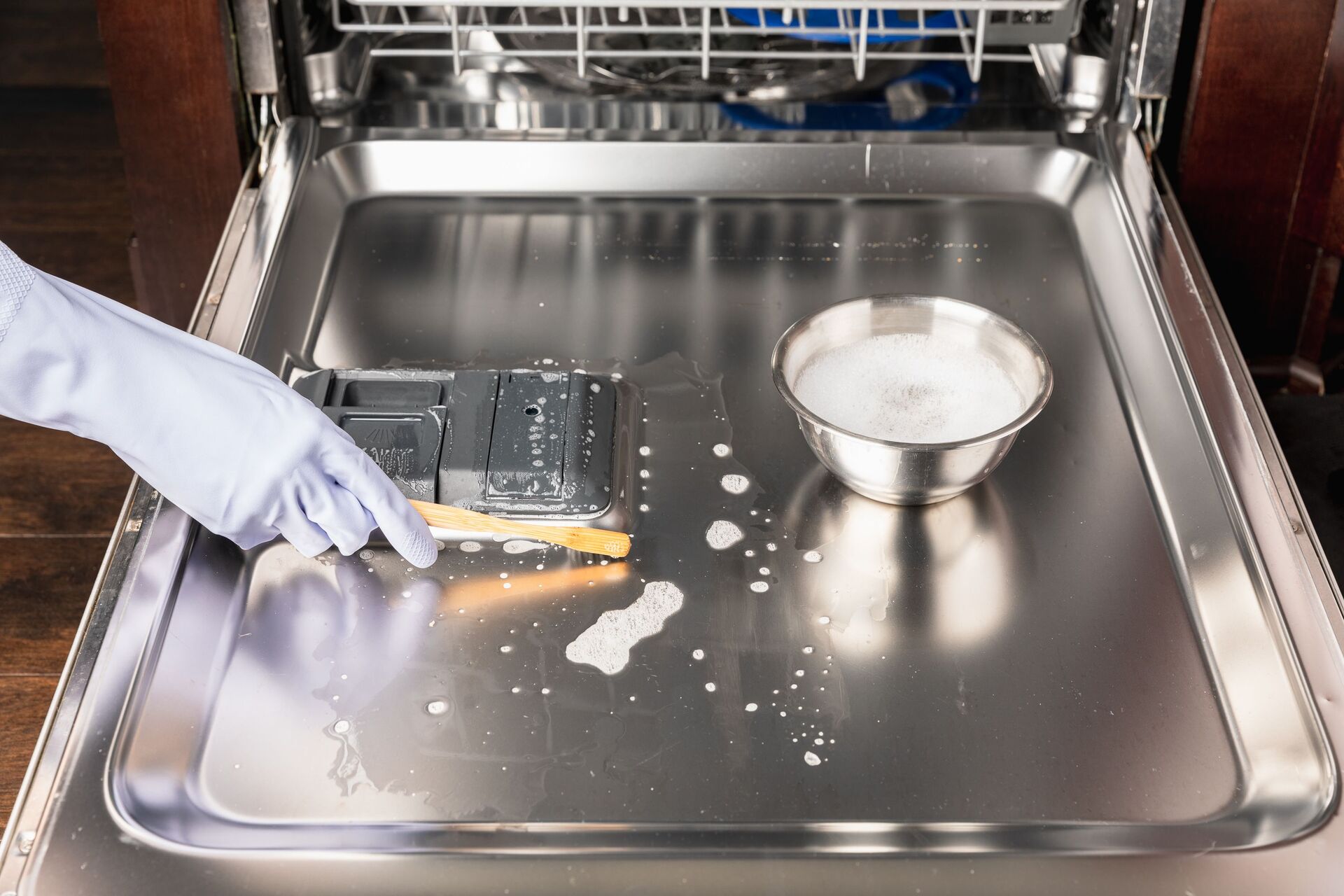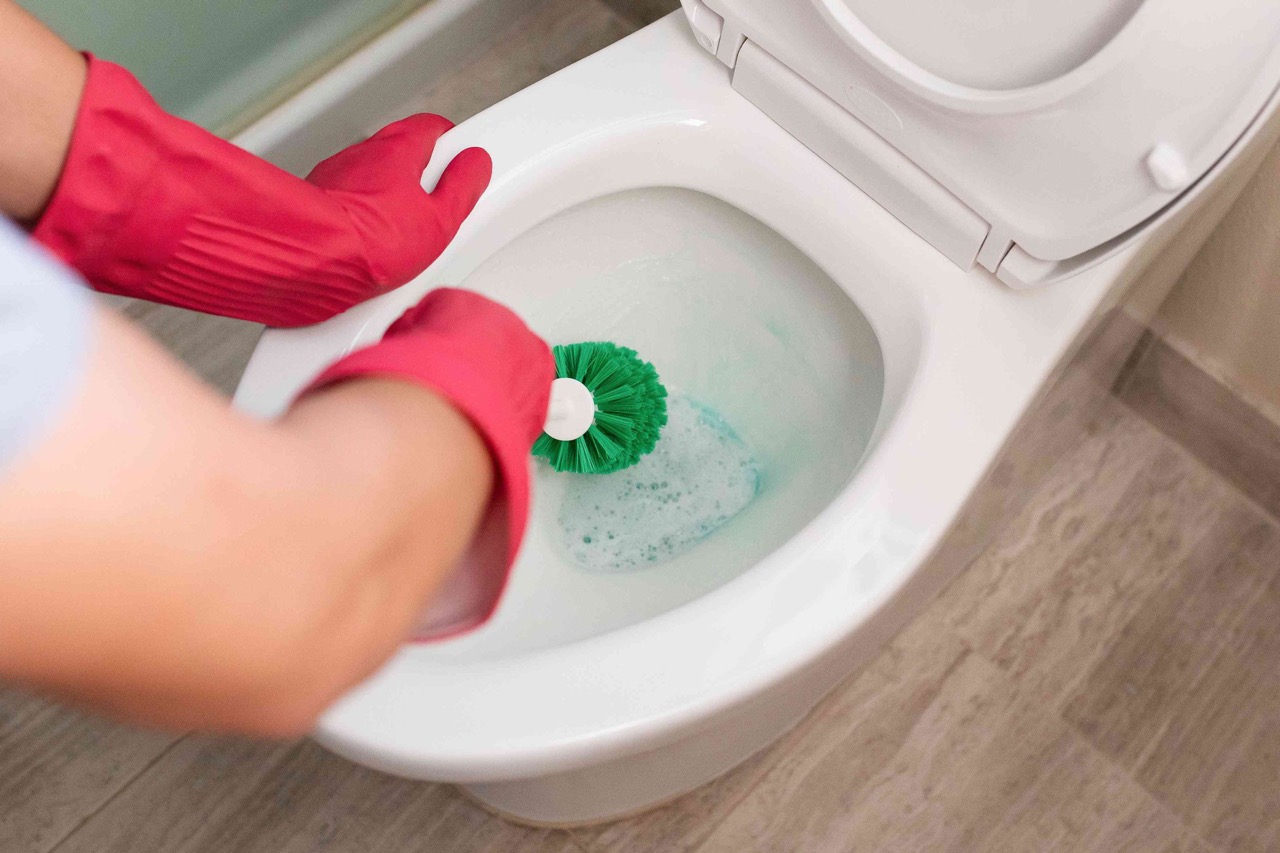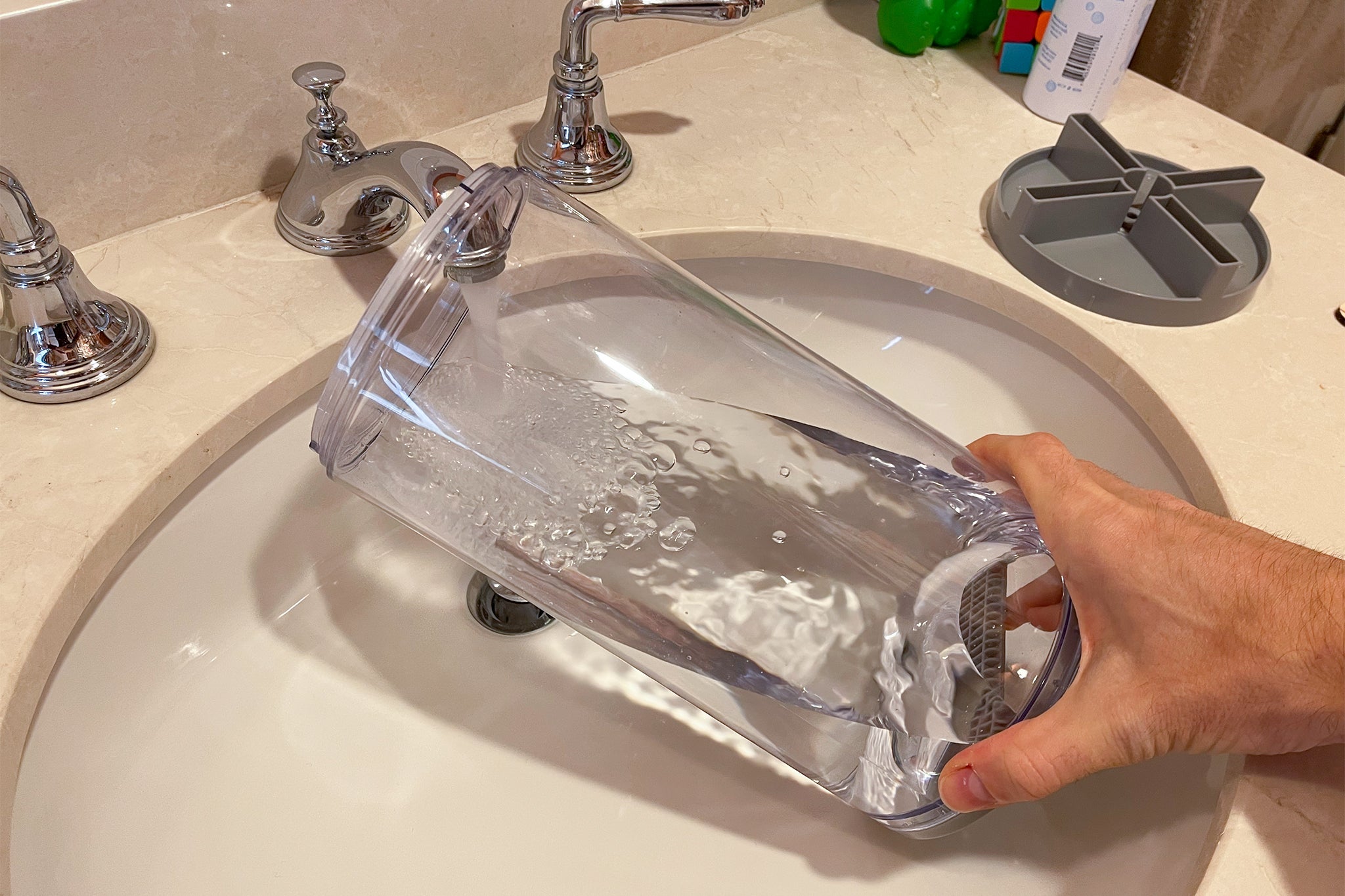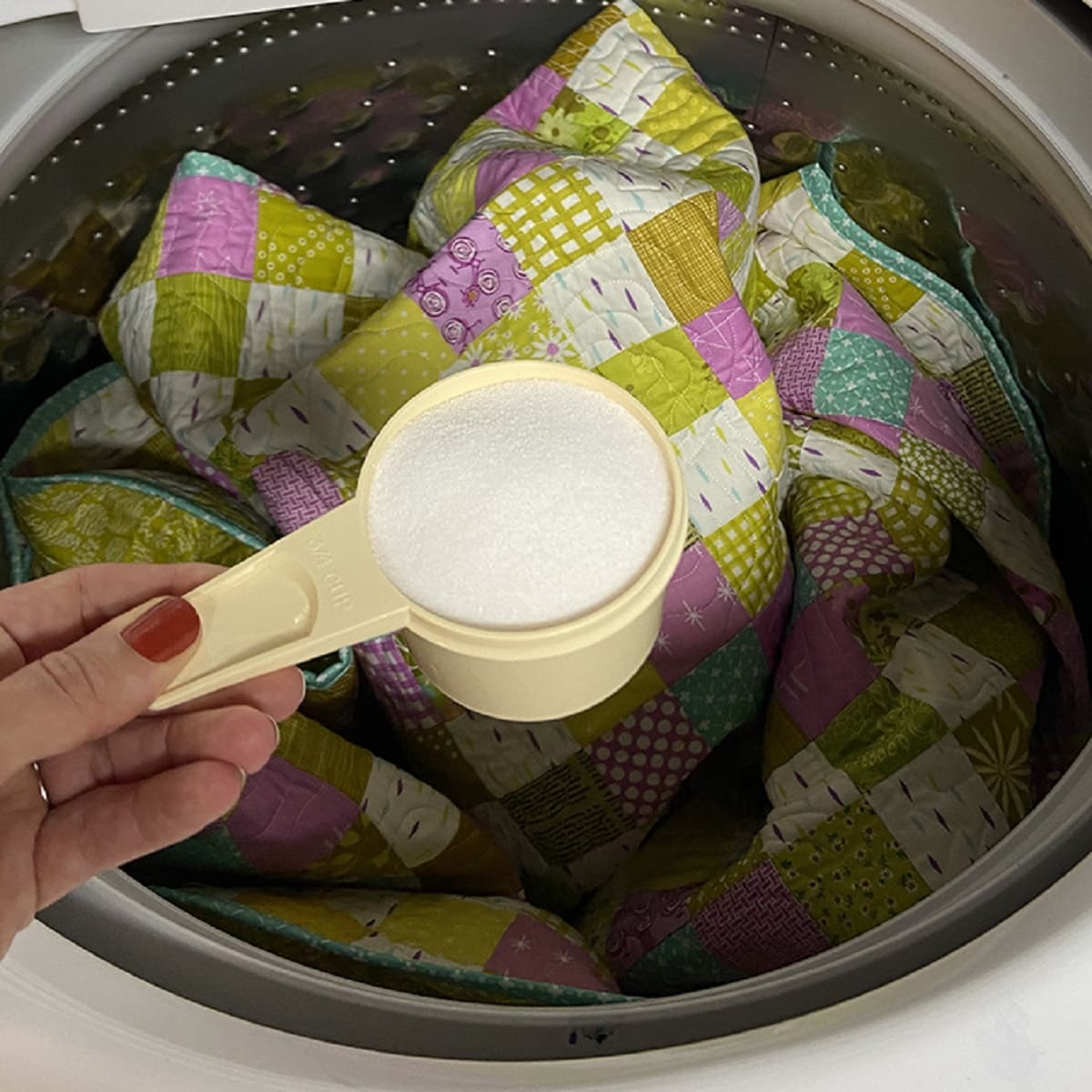

Articles
How Often Should You Replace Your Dishwasher?
Modified: January 18, 2024
Discover expert articles and tips on replacing your dishwasher. Learn how often you should replace your dishwasher for maximum efficiency and performance.
(Many of the links in this article redirect to a specific reviewed product. Your purchase of these products through affiliate links helps to generate commission for Storables.com, at no extra cost. Learn more)
Introduction
Having a dishwasher in your kitchen is a convenient and time-saving appliance, but like any other household appliance, it has a limited lifespan. Over time, wear and tear can affect the performance and efficiency of your dishwasher, making it necessary to replace it. But how often should you replace your dishwasher?
There are several factors to consider when determining the lifespan of a dishwasher. Factors such as usage, maintenance, and the quality of the appliance itself can all have an impact. In this article, we will explore these factors and provide guidance on how often you should replace your dishwasher.
Frequent usage of a dishwasher can contribute to its wear and tear. If you have a large family or frequently host gatherings, your dishwasher is likely to experience more cycles and strain. This constant use puts stress on the components of the dishwasher and can lead to a shorter lifespan.
Another factor that affects the lifespan of a dishwasher is the quality of the appliance itself. Higher-quality dishwashers are typically built with durable materials and advanced technology, allowing them to withstand years of use. On the other hand, cheaper or lower-quality dishwashers may not be as durable and may need to be replaced sooner.
Maintenance also plays a crucial role in the lifespan of your dishwasher. Regular cleaning and maintenance can prevent build-up of grime and debris, which can cause clogs and damage to the dishwasher. Additionally, proper care and maintenance can help you identify and address any issues early on, potentially extending the lifespan of your appliance.
So, what is the average lifespan of a dishwasher? On average, a dishwasher is expected to last between 9 to 12 years. However, this can vary depending on the factors mentioned above. A well-maintained and high-quality dishwasher may last even longer, while a dishwasher that is heavily used and poorly maintained may need replacement sooner.
Knowing when to replace your dishwasher is important to avoid unexpected breakdowns and costly repairs. There are several signs that indicate your dishwasher may need replacing. These signs include:
- Increased noise during operation
- Persistent leaks or water damage
- Inefficient cleaning or draining
- Visible rust or corrosion
- Frequent repairs
If you are experiencing any of these issues, it may be time to start considering a replacement. Replacing your dishwasher can save you from the frustration of a malfunctioning appliance and improve the overall efficiency and effectiveness of your kitchen operations.
In addition to knowing when to replace your dishwasher, regular maintenance is key to prolonging its lifespan. Here are some tips to help you extend the lifespan of your dishwasher:
Key Takeaways:
- Regular maintenance, mindful usage, and attention to quality can significantly extend the lifespan of your dishwasher, ensuring efficient and effective performance for years to come.
- Recognizing signs that indicate your dishwasher may need replacement, such as increased noise and persistent leaks, can help you make informed decisions and avoid unexpected breakdowns or costly repairs.
Read more: How Often Should You Replace Your Plunger
Factors that Affect the Lifespan of a Dishwasher
The lifespan of a dishwasher can vary depending on several factors. Understanding these factors can help you make informed decisions and take the necessary steps to extend the longevity of your appliance.
1. Quality of the Dishwasher: The quality of the dishwasher itself plays a significant role in its lifespan. High-quality dishwashers are often built with better materials and advanced technology, which can result in better performance and durability. Investing in a reputable brand or model with positive customer reviews can increase the chances of having a longer-lasting dishwasher.
2. Usage and Frequency: The frequency and intensity of dishwasher usage can impact its lifespan. If you have a large family or frequently host gatherings, your dishwasher will go through more cycles and experience more wear and tear. On the other hand, if you only use your dishwasher sparingly, it may last longer. Being mindful of your dishwasher’s workload and avoiding overloading it can help prolong its lifespan.
3. Maintenance and Care: Regular maintenance and proper care are crucial factors in extending the lifespan of your dishwasher. Following the manufacturer’s recommended maintenance guidelines, such as cleaning the filter regularly and inspecting and cleaning the spray arms, can prevent clogs and ensure optimal performance. Additionally, avoiding harsh detergents and using dishwasher-safe products can prevent damage and corrosion.
4. Water Quality: The quality of the water in your area can also impact the lifespan of your dishwasher. Hard water, which contains high levels of minerals such as calcium and magnesium, can cause mineral deposits to build up in the dishwasher’s internal components. Over time, this buildup can affect the efficiency and reliability of the appliance. Using water softeners or descaling agents can help mitigate this issue and prolong the lifespan of your dishwasher.
5. Installation and Ventilation: Proper installation and ventilation are essential for the optimal performance and longevity of your dishwasher. Installing the dishwasher according to the manufacturer’s instructions and ensuring proper electrical and plumbing connections can prevent damage and premature breakdowns. Adequate ventilation prevents the buildup of excessive heat, which can cause components to wear out faster.
6. Temperature and Energy Efficiency: Running your dishwasher at higher temperatures or using intensive cycles can put additional strain on the appliance. Opting for energy-efficient settings and programs can help reduce the workload on your dishwasher and potentially extend its lifespan. It is also recommended to wait until you have a full load before running the dishwasher to maximize efficiency.
By considering these factors and taking proactive measures to maintain and care for your dishwasher, you can significantly increase its lifespan. Regular maintenance, mindful usage, and attention to quality will ensure that your dishwasher continues to serve you efficiently and effectively for years to come.
Average Lifespan of a Dishwasher
When investing in household appliances, it’s important to have realistic expectations regarding their lifespan. Dishwashers, while a convenient addition to any kitchen, are not meant to last indefinitely. Understanding the average lifespan of a dishwasher can help you plan and budget for its eventual replacement.
On average, a dishwasher is expected to last between 9 to 12 years. However, it’s important to note that this estimation can vary based on several factors, including the quality of the appliance, frequency of use, maintenance, and water quality.
Higher-quality dishwashers, typically made by reputable brands, tend to have a longer lifespan. These dishwashers are often built with better materials and advanced technology, which can enhance their durability and performance. Investing in a high-quality dishwasher upfront can pay off in the long run, as it may extend the lifespan of the appliance.
Another factor that affects the lifespan of a dishwasher is how often and intensively it is used. If you have a large family or frequently host gatherings, your dishwasher will experience more cycles and may be subjected to increased strain. Constant heavy usage can contribute to wear and tear, potentially shortening the lifespan of the appliance.
Maintenance is another key factor in the overall lifespan of a dishwasher. Regular cleaning and proper care can prevent the build-up of grime, debris, and mineral deposits, which can impact the efficiency and effectiveness of the appliance. Following the manufacturer’s guidelines for maintenance, such as cleaning the filter and inspecting spray arms, can help prolong the lifespan of your dishwasher.
The quality of the water in your area can also influence the lifespan of a dishwasher. Hard water, which contains high levels of minerals, can cause mineral deposits to accumulate inside the dishwasher. Over time, this build-up can lead to clogs and affect the functioning of the appliance. Using water softeners or descaling agents can help mitigate this issue and extend the lifespan of your dishwasher.
Ultimately, the average lifespan of a dishwasher serves as a guideline rather than a rule. By taking into account the factors mentioned above and practicing proper maintenance and care, you can potentially extend the lifespan of your dishwasher beyond the average. Regularly monitoring your dishwasher’s performance and being aware of signs that indicate it may need replacement will help you make an informed decision when the time comes to upgrade to a new appliance.
Signs that Your Dishwasher Needs Replacement
A dishwasher is a valuable appliance that saves time and effort in the kitchen, but like any other appliance, it will eventually reach the end of its lifespan. It’s important to be aware of the signs that indicate your dishwasher may need replacement, as continuing to use a malfunctioning dishwasher can lead to further damage and potentially costly repairs. Here are some signs that it may be time to replace your dishwasher:
- 1. Increased Noise: If your dishwasher has suddenly become louder during operation, it could be a sign of a mechanical issue. Excessive noise can indicate worn-out parts or an impending breakdown. If the noise persists even after routine maintenance, it may be time to consider a replacement.
- 2. Persistent Leaks or Water Damage: A dishwasher should effectively contain all the water within its confines. If you notice persistent leaks or water damage around your dishwasher, it could indicate a faulty seal or a cracked component. Not only can this cause damage to your kitchen, but it may also lead to further issues with the dishwasher’s functionality.
- 3. Inefficient Cleaning or Draining: Your dishwasher should effectively clean and drain dishes and utensils. If you consistently notice residue or food particles left on cleaned dishes, it may indicate a problem with the spray arms, filters, or drain system. Despite thorough cleaning and maintenance, if the problem persists, replacing the dishwasher may be the best solution.
- 4. Visible Rust or Corrosion: The presence of rust or corrosion on the interior or exterior of the dishwasher is not only unsightly but can also indicate a decline in the appliance’s integrity. Rust can weaken the structure of the dishwasher and potentially cause leaks or accidents. If these signs are evident, it may be time to invest in a new dishwasher.
- 5. Frequent Repairs: If you find yourself frequently calling a technician to fix recurring issues with your dishwasher, it may be more cost-effective and practical to replace the appliance altogether. The cost of repeated repairs can quickly add up, and a new dishwasher can offer better reliability in the long run.
While some minor issues can be resolved through repairs and maintenance, it’s important to recognize when your dishwasher is experiencing chronic problems that cannot be easily fixed. In such cases, replacing the dishwasher can provide the peace of mind and improved functionality that you desire in the kitchen.
Ultimately, the decision to replace your dishwasher should be based on a combination of factors, including the age of the appliance, the frequency of issues, and the cost-effectiveness of repairs. Consulting with a professional or trusted technician can provide further insights and help you make an informed decision.
It is recommended to replace your dishwasher every 10-13 years to ensure optimal performance and energy efficiency. Regular maintenance can also extend its lifespan.
Benefits of Regular Maintenance
Regular maintenance is vital to ensure the longevity and optimal performance of your dishwasher. By incorporating routine maintenance into your household chores, you can enjoy several benefits that make it worthwhile. Here are some key benefits of regular dishwasher maintenance:
- 1. Prolongs the Lifespan: Regular maintenance helps extend the lifespan of your dishwasher. By cleaning and inspecting key components, such as the filter, spray arms, and drain, you can prevent the build-up of grime, debris, and mineral deposits that can affect its functionality. Addressing minor issues early can prevent more significant problems down the line.
- 2. Improves Cleaning Performance: A well-maintained dishwasher will deliver better cleaning results. Cleaning the filter and removing any residue or food particles ensures that water flows freely and reaches all areas of your dishes. This helps to eliminate spots, stains, and food remnants, leaving your dishes sparkling clean.
- 3. Enhances Energy Efficiency: Regular maintenance can contribute to improved energy efficiency. A dishwasher that runs smoothly and efficiently consumes less energy, reducing your utility bills. By removing any obstructions in the spray arms and ensuring that the drain is clear, your dishwasher can operate optimally, requiring less energy to complete each cycle.
- 4. Reduces the Risk of Costly Repairs: Investing time in regular maintenance can prevent major breakdowns that may require expensive repairs or even the need for a new dishwasher. By addressing any minor issues promptly, you can avoid more extensive damage that could impact multiple components and require professional intervention.
- 5. Improves Hygiene and Odor Control: A clean and well-maintained dishwasher helps maintain hygiene and eliminates unpleasant odors. Regular maintenance prevents the accumulation of food particles, bacteria, and stagnant water, reducing the risk of unpleasant smells in your kitchen. It also ensures that your dishes are thoroughly cleaned and sanitized, promoting a healthy environment.
Implementing a maintenance routine for your dishwasher is relatively simple and does not require much time or effort. Here are some essential maintenance tasks you can incorporate into your routine:
- 1. Cleaning the Filter: Remove and clean the dishwasher filter regularly to prevent clogs and ensure optimal water flow.
- 2. Inspecting the Spray Arms: Check the spray arms for any blockages or damage and clean them if necessary.
- 3. Clearing the Drain: Check the dishwasher drain for any debris or blockages and remove them to prevent water backup and drainage issues.
- 4. Wiping the Interior: Regularly wipe down the interior of the dishwasher to remove any residue or build-up.
- 5. Using Appropriate Detergents: Ensure you are using the recommended dishwasher detergent and avoid using products that may damage the appliance.
By incorporating these maintenance tasks into your regular cleaning routine, you can reap the benefits of a well-maintained dishwasher. Not only will it provide you with cleaner and more hygienic dishes, but it will also save energy, reduce the risk of breakdowns, and extend the lifespan of your appliance.
How to Extend the Lifespan of Your Dishwasher
A dishwasher is a valuable appliance in any kitchen, and with proper care and maintenance, you can extend its lifespan and enjoy its benefits for years to come. Here are some essential tips to help you maximize the longevity of your dishwasher:
- 1. Regular Cleaning: Clean your dishwasher regularly to remove any food debris, residue, or mineral deposits. Wipe down the interior, including the door seal, and clean the filter according to the manufacturer’s instructions. This prevents clogs and ensures optimal performance.
- 2. Load the Dishwasher Correctly: Properly load your dishwasher to avoid overloading or misaligning the spray arms. Distribute the dishes evenly and face them towards the spray arms for efficient cleaning. Be cautious not to block the detergent dispenser or obstruct the rotating parts.
- 3. Use the Right Detergent: Choose a dishwasher detergent that is specifically designed for use in dishwashers. Using the wrong type of detergent can result in build-up or even damage to the appliance. Follow the manufacturer’s recommendations for the amount of detergent to use for optimal cleaning results.
- 4. Regularly Inspect and Maintain the Spray Arms: Check the spray arms for any debris or blockages that may affect their performance. Remove any particles, such as food scraps or hard water build-up, that may hinder water flow. Clearing the spray arms ensures effective cleaning of your dishes.
- 5. Clean the Dishwasher Drain: Regularly inspect and clear the dishwasher drain of any debris that may accumulate. A clogged drain can cause water backup and prevent proper drainage, leading to potential damage to the appliance. Clearing the drain ensures efficient functioning of your dishwasher.
- 6. Use Water Softeners: If you live in an area with hard water, consider using water softeners or descaling agents to minimize the build-up of mineral deposits. Hard water can cause clogs and affect the efficiency and lifespan of your dishwasher.
- 7. Avoid Excessive Heat: Running your dishwasher on high-temperature cycles consistently can put strain on the appliance. Opt for energy-saving or eco-friendly settings whenever possible. Running the dishwasher with a full load also optimizes energy usage and reduces the strain on the dishwasher.
- 8. Address Issues Promptly: If you notice any signs of malfunction or performance decline, such as increased noise, leaks, or inefficient cleaning, address the issues promptly. Ignoring problems can lead to further damage and shorten the lifespan of your dishwasher. Consult the manufacturer’s guide or seek professional help if necessary.
By following these tips and incorporating them into your dishwasher maintenance routine, you can significantly extend the lifespan of your appliance. Regular cleaning, proper loading, and using the right detergents are simple yet effective ways to ensure optimal performance. Additionally, addressing issues promptly and performing regular inspections can prevent major problems and costly repairs.
Remember, every dishwasher is unique, so it’s essential to consult the manufacturer’s guide for specific maintenance instructions. With proper care, your dishwasher will continue to serve you well, making kitchen cleanup a breeze for years to come.
Conclusion
Your dishwasher is an essential appliance in your kitchen that provides convenience and efficiency in cleaning your dishes. To ensure that it continues to serve you well for a long time, it’s important to understand how to maintain and care for it properly.
In this article, we explored various factors that affect the lifespan of a dishwasher, including the quality of the appliance, usage and frequency, maintenance, water quality, installation, and energy efficiency. By being aware of these factors, you can make informed decisions when it comes to replacing your dishwasher.
Additionally, we discussed the signs that indicate your dishwasher may need replacement. These signs include increased noise, persistent leaks or water damage, inefficient cleaning or draining, visible rust or corrosion, and frequent repairs. Recognizing these signs can help you address issues promptly and avoid further damage or inconveniences in the kitchen.
We also highlighted the benefits of regular maintenance, such as prolonging the lifespan of your dishwasher, improving cleaning performance, enhancing energy efficiency, reducing the risk of costly repairs, and promoting hygiene and odor control. By incorporating regular cleaning, proper loading, and using the right detergents, you can ensure that your dishwasher operates optimally and efficiently.
Finally, we provided tips on how to extend the lifespan of your dishwasher, including regular cleaning, correct loading, using the right detergent, inspecting and maintaining the spray arms, cleaning the dishwasher drain, using water softeners, avoiding excessive heat, and addressing issues promptly. By following these tips, you can maximize the lifespan of your dishwasher and enjoy its benefits for years to come.
Remember, each dishwasher is unique, so it’s important to consult the manufacturer’s guide for specific maintenance instructions. Regular maintenance and care can go a long way in extending the lifespan of your dishwasher and ensuring that it continues to serve you well.
In conclusion, taking care of your dishwasher is essential for its longevity and optimal performance. With proper maintenance and attention, your dishwasher will remain a valuable asset in your kitchen, making your life easier and more convenient for years to come.
Frequently Asked Questions about How Often Should You Replace Your Dishwasher?
Was this page helpful?
At Storables.com, we guarantee accurate and reliable information. Our content, validated by Expert Board Contributors, is crafted following stringent Editorial Policies. We're committed to providing you with well-researched, expert-backed insights for all your informational needs.















0 thoughts on “How Often Should You Replace Your Dishwasher?”